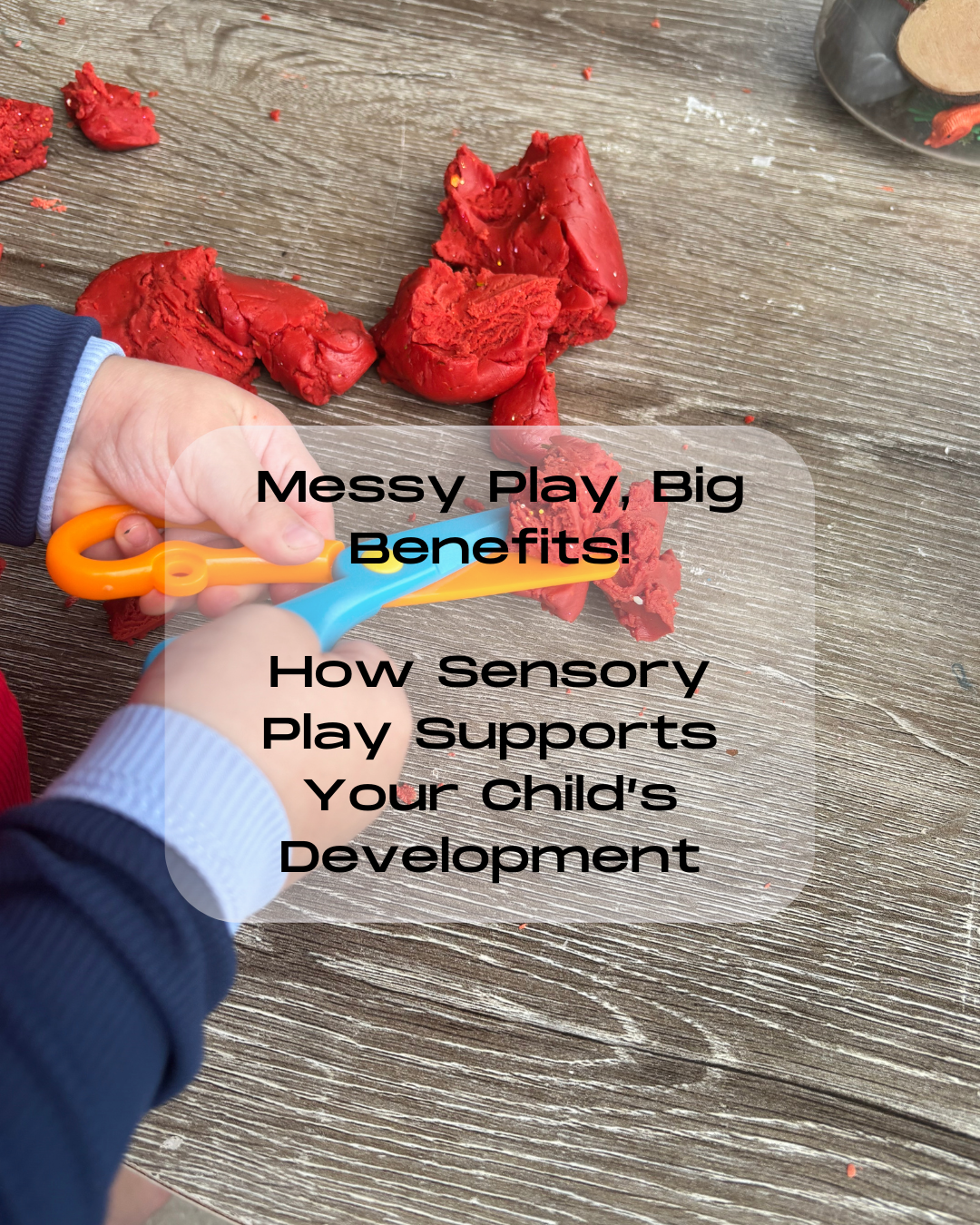
How Sensory Play Supports Your Child’s Emotional and Cognitive Development
Share
As an early childhood professional and a passionate advocate for sensory-rich experiences, I often hear parents jokingly say, "Sensory play is just an excuse to make a mess!" While there's definitely some truth to the playful chaos, sensory play offers so much more than meets the eye.
So, what exactly is sensory play? Simply put, sensory play is any activity that stimulates your child’s senses—touch, sight, smell, taste, and hearing. It also includes movement and balance activities, essential for healthy growth and development. According to Raising Children Network Australia, sensory play helps children explore and naturally encourages them to use scientific processes while they play, create, investigate, and explore (raisingchildren.net.au).

From my experience running sensory playgroups and creating specialised sensory kits at Happy Hands Messy Play Co, I've witnessed firsthand how these activities profoundly impact developmental areas like cognitive growth, emotional regulation, and fine motor skills.
Cognitive Development
Sensory play fosters cognitive development by promoting critical thinking, problem-solving, and decision-making skills. When your child engages in sensory activities such as sorting coloured rice, building sandcastles, or creating patterns in shaving foam, they're actively practising their ability to observe, hypothesise, and solve problems. The Early Years Learning Framework (EYLF), Australia's national early childhood education framework, highlights sensory play as pivotal in developing foundational cognitive abilities in young children (acecqa.gov.au).
Emotional Development
Children often find sensory play calming and emotionally regulating. It helps reduce anxiety and manage big emotions by providing an outlet for expression. Activities like squeezing sensory dough, moulding kinetic sand, or water play can offer soothing sensory experiences. According to the Australian Psychological Society (APS), sensory activities are particularly beneficial for children who experience sensory processing challenges, anxiety, or emotional dis-regulation (psychology.org.au).
Fine Motor Skills
Fine motor skills are crucial for your child's independence, affecting everyday activities like dressing, eating, and writing. Sensory activities involving pinching, pouring, scooping, and squeezing strengthen hand muscles and coordination. In our sensory playgroups, children delight in transferring coloured pasta between containers or using small tweezers to place pom-poms—activities purposefully designed to build these essential skills.

Easy Sensory Activities to Try at Home
Here are a few simple yet powerful sensory play ideas you can effortlessly set up at home:
-
Sensory Trays: Fill a tray with rice, beans, or sand and provide cups, spoons, and toys for exploring.
-
Nature Sensory Bins: Collect leaves, sticks, flowers, and stones during a walk, then explore textures and smells together.
-
Water Play: Set up bowls of water with various sized cups, funnels, and floating toys for pouring and measuring.
-
Homemade Play Dough: Quickly make dough at home, adding scents like lavender or lemon for an extra sensory dimension.
Each of these activities is a staple in our Happy Hands sensory kits and playgroups, bringing immense joy, learning, and discovery to countless families.
Sensory play is not just about making a mess—it’s about making memories, building skills, and setting the foundation for lifelong learning. I'm passionate about guiding families to embrace sensory play confidently, seeing firsthand the extraordinary ways it shapes a child's development.

Let’s celebrate messy play together—because mess truly is where developmental magic happens!
Warmly, Madison Cadby Founder, Happy Hands Messy Play Co
